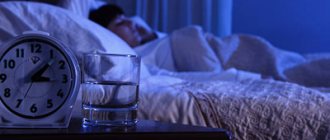Aerophobia, that is, fear of flying, affects almost 30% of the world's population over 25 years of age. Among them, 10% have never taken to the air in their lives, because fear prevented them from doing so. Such people suffer greatly, not being able to make a career if their work involves flying, as well as traveling to distant countries. But in our time, aviation is the fastest, most frequently used and convenient mode of transport.
More about aerophobia
Man cannot fly, he was created that way by nature or God, but he has always dreamed of it. Since the invention of the hot air balloon, and then the airplane, he finally had such an opportunity: now he can fly anywhere. But, at the same time, some homo sapiens developed an uncontrollable fear of flying in a device specially adapted for this.
In fact, any person, due to the instinct of self-preservation, is afraid of the previously unknown and dangerous. Such anxiety usually arises before the first flight in life. While on an airplane, an air passenger experiences discomfort; the body reacts to the unusual environment and pressure difference with a headache or earache, and nausea. It becomes alarming when the airliner shakes when it enters a turbulence zone or it falls into an air pocket. Such anxiety is a protective reaction of the body, which passes over time or is not given much importance.
It’s another matter if the fear of flying is irrational, inexplicable; takeoff and landing, and even the flight itself, are “like death” for an aerophobe. He is frightened by the sound of the engine running, landing gear retracting and extending, wing mechanization, and everything described above. He is nervous, sweats, rubs his palms, tugs at his hair, reacts violently to everything that happens on board, and often tries to drown out his fears by getting drunk before the flight or starting scandals.
Such fear, literally panic, arises from an obsessive fear of death and the inability to keep the situation under control. The aerophobe experiences insurmountable horror, because he is firmly convinced that the plane can fall, since he is not in charge of all processes and nothing depends on him.
Aerophobia can develop in a person who has previously found himself in a real dangerous situation that arose during a flight. However, it can also be imaginary, far-fetched. People who are successful, intelligent, with a strong character, but with an anxious type of thinking are susceptible to this disorder. They are afraid to entrust their life to someone else, because they are used to being responsible for themselves, to control everything that happens. Such individuals do not understand the essence of the operation of aircraft systems and the processes that ensure its safety.
Sometimes aerophobia is accompanied by a fear of closed spaces and heights (claustrophobia and acrophobia, respectively). In this case, it is a symptom of these psychological problems.
Are you afraid to fly? A psychiatrist will help!
A psychiatrist will help you overcome your fear of flying Author: medihub.org
Sometimes there is nothing left for aerophobia but to fight with doctors. For example, when fear develops into panic attacks, it is better to seek the help of psychiatrists. There is no way to do this without drug treatment.
If a person is afraid of flying to the point of hysteria, he has a veil before his eyes, he cannot move his arm or leg, or climb the stairs onto the plane, then he will also have to resort to the help of a psychiatrist. Specialists will select medications that are effective to relieve the symptoms of aerophobia.
This does not mean that they will be registered. We are very afraid of the word “psychiatrist”. There's really nothing wrong with it. This could be a one-time trip, where they will advise you on what is best to do and forget about you. Or they will help you get rid of your phobia. They use hypnosis and other things
How not to waste your money on work: recommendations from a psychologist
How to survive 14 days of self-isolation after mandras and not fall ill: for the sake of a psychotherapist
Manifestations of aerophobia
Signs of fear of flying appear before and during the flight.
A person begins to get nervous a few days before the planned departure date. This state is expressed as follows:
- irritability and aggression or depression, withdrawal;
- searching on the Internet for information about old and “recent” plane crashes increases the “degree” of fear;
- Cancellation of a flight before or after check-in.
In Germany, by the way, they treat this problem with understanding: some airlines, if the person canceling the flight has the appropriate certificate, do not charge a certain amount that is usual when returning a ticket.
Already on board the plane, which has not even taken off yet, the aerophobe begins to choke and his heartbeat quickens. Then the muscles may spasm, the gastrointestinal tract may protest, and sweat will flow. A panic attack is possible when the ship rolls, there is an air pocket, or mechanical noise. Any movement of crew members (flight attendants) around the cabin causes suspicion and altercations with them, hysteria.
There may be other physical and mental manifestations. For example, it is believed that quite frequent inappropriate behavior of passengers (fights, scandals) is provoked by aerophobia. So this disorder poisons the lives of not only those who suffer from it (especially if their work involves frequent flights), but also other people. It also poses a threat to the safety of the aircraft and, as a consequence, to the lives of all persons on it.
Lifehacks to relieve anxiety and panic
Breathing exercises for calming Author: Oh, Sea
There are techniques that help you calm down quickly. One of them is square breathing. 1 – inhale, 2 – hold your breath, 3 – exhale, hold your breath for 4. And so in a circle, drawing a square in the imagination. Chewing gum helps a lot. The process itself calms and relieves nausea
Treatment methods
Aerophobia cannot be tolerated, and it is simply impossible to adapt to it. It not only creates discomfort, but, as it gets worse, it will deal blows, each time more significant, to the physical and mental state of a person. Therefore, you need to immediately contact a psychologist.
To treat pathology, pharmacological drugs and corrective psychotherapy are used.
Aerophobia tablets
Is there any effective, effective remedy for fear of flying? Usually sedatives (calming) drugs are prescribed as medications. Each product is selected individually by a specialist. This can be either tablets, valerian drops or motherwort tincture. Anxiolytics are possible - drugs that reduce fear.
If a patient has a problem with the vestibular apparatus (he gets motion sickness), then there are antihistamines that block this process: Aeron, etc.
Self-medication in this case is unacceptable: each drug and its dosage is prescribed only by a doctor. This will avoid negative consequences from side effects and intolerance to components, allergies.
In addition, experts do not recommend taking strong anti-stress medications at all, since they can act unpredictably in flight conditions. Homeopathic, non-addictive ones are recommended as sedatives.
Many aerophobes believe that by taking a quick-acting pill, they will immediately forget about anxiety and can freely set off on an airliner. But this will have to be done every time before boarding. And the problem, in general, will not go away, but will continue to haunt you for the rest of your life!
The “magic pill” cannot get rid of fear. It will only relieve his symptoms for a while. But the aerophobe’s brain will remember that it was necessary to suppress the frightening situation with the help of a drug that made it possible to endure a “dangerous, very scary, risky” flight.
The body still suffered stress, which will increase during the subsequent flight. And one “beautiful” day, no remedy will cope with fear. That is why the intervention of a specialist is necessary to help the patient find the causes of the phobia and change his thinking to a positive one.
Help from a psychologist
First of all, the patient needs to admit that there is a problem - without this, aerophobia cannot be cured. Next, a psychologist comes into the work, looking for the source of irrational fear and teaching him to relax, using the following techniques:
- cognitive behavioral therapy;
- exposure technique;
- hypnosis.
An experienced specialist in Moscow can be found at the City Psychoendocrinological Center. When he works together with a patient who is aware of his disorder and wants to be cured, it will not take much time to get rid of aerophobia - a few short sessions are enough.
Now in different countries there are Centers to combat aerophobia (in Russia there are also such). People of all ages come to them. There, among other methods, a flight stimulator is used - a full-size copy of a real aircraft.
Clients study the equipment, sit at the controls themselves, simulating takeoff and landing in certain weather conditions and time of day. This gives them the opportunity to fully understand what is happening on board, why the sounds occur that frighten them so much, and why the plane shakes in the turbulence zone, and learn about many standard situations that are completely harmless. All this gives an excellent therapeutic effect.
Why the clinic named after. prof. F.F. Is Preobrazhensky recommended for the treatment of aerophobia?
- Unique psychotherapists, specialists in the treatment of phobias, authors of many books and articles on this topic, candidates of medical sciences, doctors of the highest category.
- Author's techniques that have shown practical results and are time-tested
- Complete anonymity and confidentiality of treatment
- The clinic has experience since 2000.
- Treatment under contract with guaranteed results.
- Possibility of strengthening the removal of fears during training in real flight conditions on an airplane with a psychotherapist
Come to our clinic and join the many happy people who have conquered their fear of flying.
Make an appointment
Expert advice
Here are eleven recommendations on how to act for aerophobes, given by specialists from the above-mentioned centers:
- Keep stress to a minimum . Here's what you need to do to achieve this. Before your flight, be sure to get enough sleep. It is better to check in online at home by printing out your boarding passes. It is better not to take large luggage with you - you will have to stand in line for weighing with it; it is better to get by with hand luggage. Choose the most comfortable way to arrive at the airport.
- It is important to choose comfortable seats on the plane, where turns and shakes will not be felt . In the Boeing 737-800 this is from rows 12 to 18, in the Airbus A320 - from 8 to 15. In any case, do not sit in the back - you will certainly get motion sickness there.
- You need to dress comfortably for the trip , no buttoned collars or tight ties - clothes and shoes should be comfortable. It is advisable not to wear watches with a tight strap, narrow bracelets, or rings.
- Grab a special neck pillow.
- Don't be shy about telling your guides about your phobia . Quite often they are imbued with such a problem and can take you into the cockpit and introduce you to the crew. This, as psychologists say, will eliminate the depersonalization of those driving the plane and will provide an opportunity to gain confidence in their professionalism.
- Get distracted and have fun . Nowadays they offer movies on planes, but you may not like them. Therefore, it is advisable to prepare in advance: download some interesting film, audiobook, or game to your smartphone or tablet. And don't forget to take your headphones with you!
- Relax . To do this, you can breathe deeply, slowly count to ten to yourself, or chant mantras.
- Find an interesting interlocutor . This, of course, is difficult, but maybe you will be lucky and your neighbor will distract you from your imagination-inducing fantasies with his stories. A flight attendant can be a good conversationalist.
- Drink more . We are not talking about alcoholic beverages, although a glass of champagne in honor of the holiday would not hurt, but about juice or still water. The air in the cabin is dry, and this will help cope with thirst.
- Restore blood circulation . To do this, you need to walk around the salon, bend over several times, and rise on your toes. If you are embarrassed to draw attention to your person in this way, then you can sit straight in a chair, straighten your shoulders and rotate your hands and feet.
- For general development, inquire in advancehow airplanes are designed and fly, and their level of safety. That is, as already mentioned, to learn materiel.
Imaginary danger
It should be noted right away: in car accidents, which occur much more often, the likelihood of dying is thousands of times greater than in a plane crash. This is evidenced by dry statistics. An airplane passenger has a one in 45 million chance of crashing. Let's do the math: even if he flew every day, such a death could have overtaken him only after 123 thousand years.
Pilots go through several stages of training. They are people too and they want the number of takeoffs to equal the number of landings.
As for modern aircraft, they are very reliable and have several redundant systems. That is, if one fails, the other will start working, which will allow the plane to land safely at the nearest airport. Both the crew and ground services will make efforts to achieve this.
Of course, we have heard news more than once about plane crashes with many victims. Each case has its own reasons, often a coincidence. But all of them are carefully investigated, studied and measures are taken to ensure that this does not happen again.











